Baroda beckons Modi
In picking a seat, between Baroda and Varanasi, Modi will have to consider more than just the election at hand.
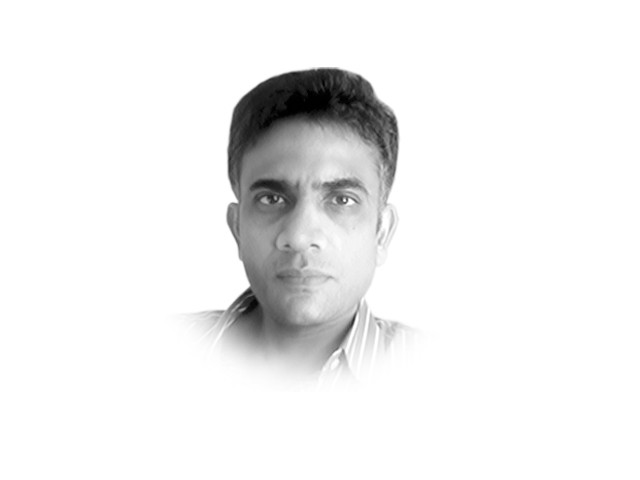
The writer is a former editor of the Mumbai-based English newspaper Mid Day and the Gujarati paper Divya Bhaskar. His book Translating Saadat Hasan Manto’s non-fiction work will be published this year
aakar.patel@tribune.com.pk
The editor of Firstpost, R Jagannathan, was also on the show and he was asked which seat — Baroda or Varanasi (also known as Kashi) — Modi would pick if he won both.
Jagannathan said Modi would pick Varanasi. This was because of the symbolism, given Kashi’s position as the seat of Hinduism. The BJP has long engaged the city and the Gyanvapi mosque, built in Kashi over a temple demolished by Aurangzeb in 1669, keeps returning to the Hindutva agenda.
In representing Varanasi, Modi would also own the BJP’s revival in Uttar Pradesh. It has come in third or fourth in recent elections and this will be the first time since its Babri and post-Babri period that the BJP will win the state. As an MP from Varanasi, Modi will rightfully claim it is his victory.
This is all sound logic and it is quite likely that he will retain Varanasi and drop Baroda.
Both seats have been with the BJP since 1991 except for one defeat (1996 in Baroda and 2004 in Varanasi) each to the Congress.
However, there the similarities end.
Varanasi is a very fragmented constituency and its voting patterns are not predictable. Though the BJP has won it consistently, in 2009, Murli Manohar Joshi won the seat with only 30 per cent of the total vote. The margin he had was not even 20,000 votes.
This is not a safe seat in that sense.
On the other hand, Baroda regularly delivers 100,000 plus margins to the BJP and well over 50 per cent of the vote, no matter who the candidate is. The Congress dominated Baroda through the Gaekwad family, but even there, the BJP has made inroads. Modi took along one Gaekwad family member when he filed his nomination.
That is the reason Modi can make Baroda his pocket borough. In picking a seat, Modi will have to consider more than just the election at hand.
All South Asian dynasties have nurtured a place that will return them to the Parliament without difficulty. The Bhuttos have Larkana, the Gandhis have Amethi, Mujib and his family have Gopalganj, the Pawars have Baramati.
This, as Jagannathan observed on the show, takes away one major distraction for the PM candidate and he can invest his time elsewhere.
Modi famously has nobody to leave an inheritance to but even he needs a place he can contest without difficulty from. He is relatively young, and at 64 is likely to be around for not a few more elections.
The second aspect is that in keeping Baroda, there is a zone of influence which he can command. Meaning a block of Gujarati MPs, whose interests he will represent. This is unlike UP, which has its own caste and regional lobbies from which Modi is naturally excluded being an outsider.
At the moment this is not a problem because he has united the party under his leadership, but who can tell what the future will bring? Even the Gandhis and the Bhuttos felt the need to nurture a place and Varanasi cannot be that place for Modi.
Other than the obvious linguistic and regional connections, Modi has another reason to prefer Baroda. The city has a large and powerful Marathi population because Gujaratis were conquered by the Maratha generals who came after Shivaji.
Modi connects with the Baroda Marathis through his Rashtriya Swayamsevak Sangh (RSS) links. His mentor, Madhukarrao Bhagwat (current RSS chief Mohanrao’s father), spent years in Baroda, building the Hindutva institution there.
Baroda is the second most communally violent city in India (after Ahmedabad) and the Marathi population is quite active in this violence, taking it further towards the BJP. Modi can keep the city for as long as he wants.
I would not be surprised therefore, if he chose, despite the obvious attractions of Banaras-Kashi, to retain Baroda.
Published in The Express Tribune, April 20th, 2014.
Like Opinion & Editorial on Facebook, follow @ETOpEd on Twitter to receive all updates on all our daily pieces.

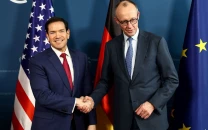
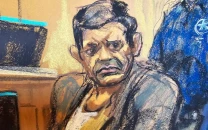
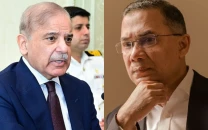
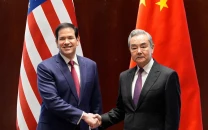

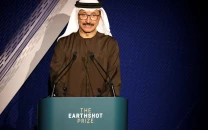












COMMENTS
Comments are moderated and generally will be posted if they are on-topic and not abusive.
For more information, please see our Comments FAQ